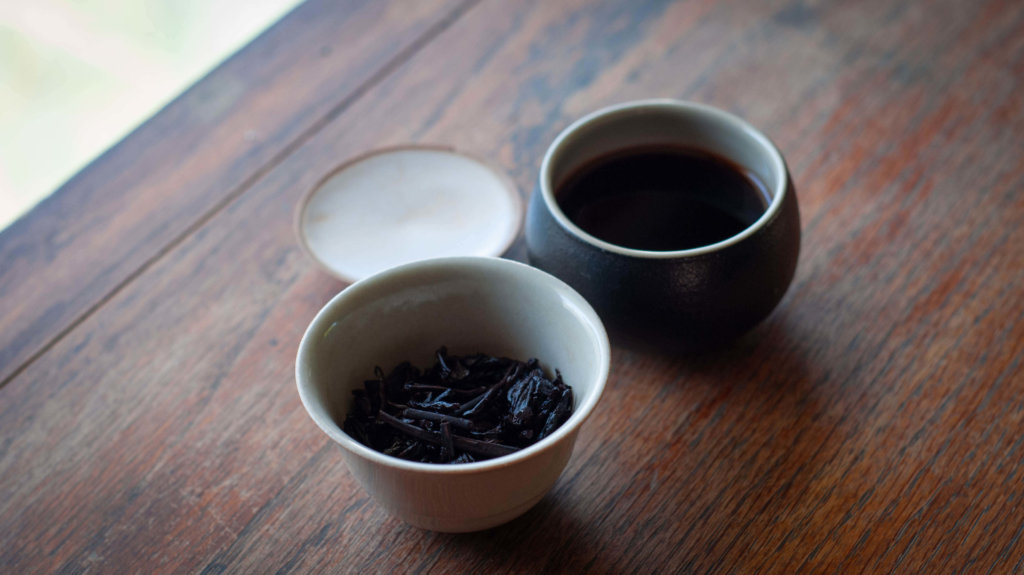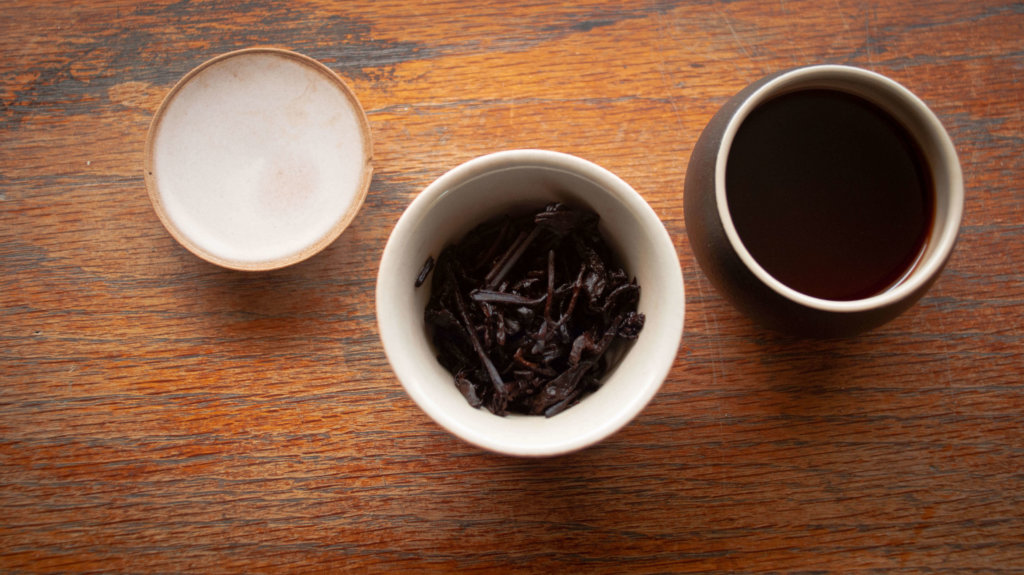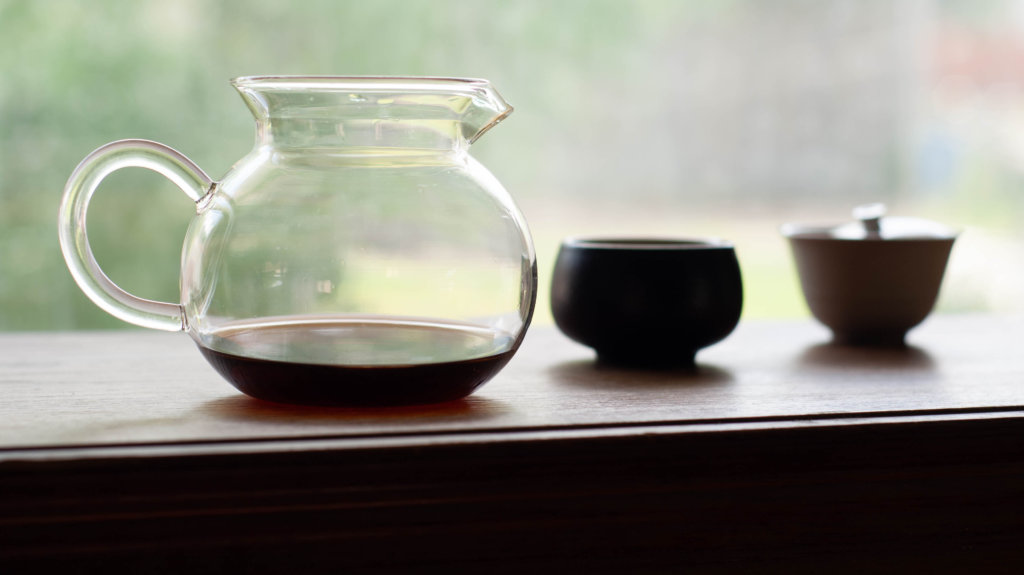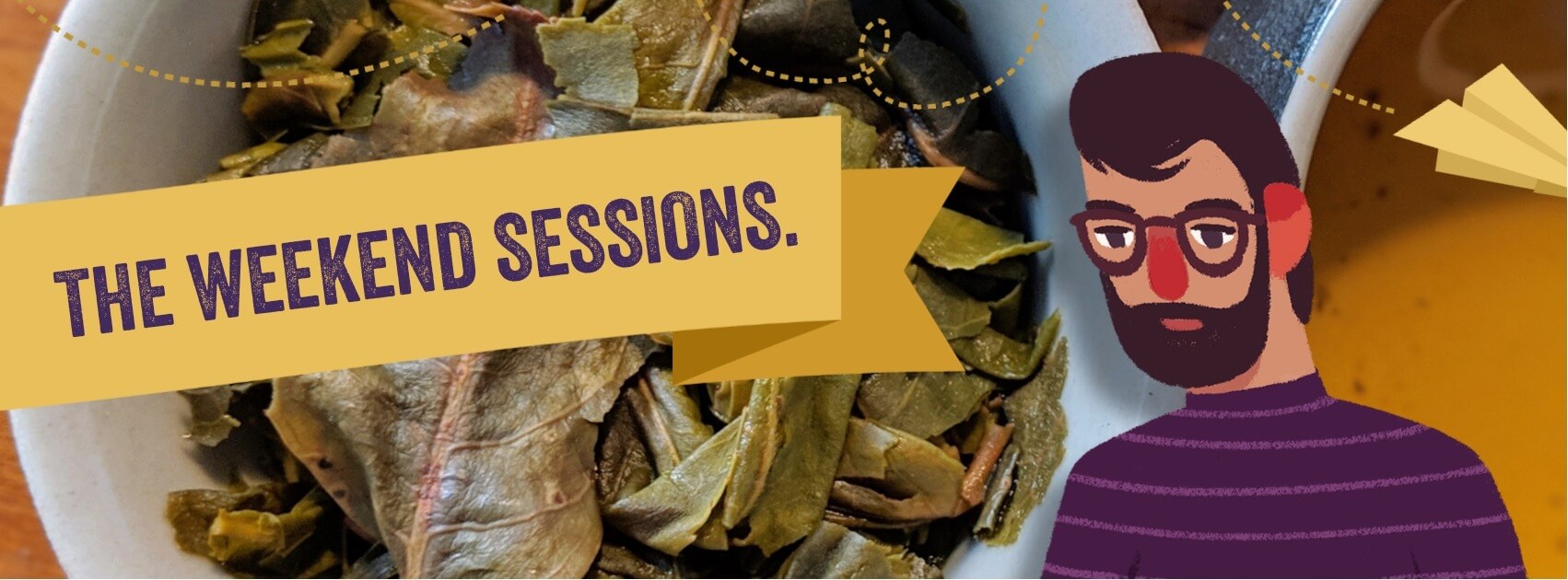Lately I have been hitting the shou pretty hard. I’ve only posted a few reviews so far, but in my non-critical-review-mode drinking time I have been gravitating towards shou for the last couple of months, and have been doing so in lead up to this. When Crimson Lotus put their three one-of-a-kind shous up for sale I immediately knew I had to try them, but shou isn’t something I drink a tonne of. As I have (most likely) said before, I really enjoy ripe puerh when I have it, but for one reason or another I never seem to reach for it. So in preparation for trying out these three teas I wanted to drink as much “normal shou” as I could get my hands on in a reasonable amount of time.
Of the three samples, the first one I wanted to try was the “2018 Spring Yiwu Gao Shan Zhai Gushu Shou Puerh.” Of the bunch, this was the one that Glen said was the closest to a normal shou, so it seemed like a good place to start. I also just recently tried a Yiwu ripe from Zheng Si Long, so I could do a bit of a comparison with it still in my recent memory.
Initial Impressions
The dry leaves smell like shou to me. I’m going to be honest and say that my nose really can’t distinguish one ripe puerh from another, or well stored from poor. This is something I need to work on. After a rinse the leaves take on an earthy and herbaceous scent that is unbelievable appetizing. There is a slight funkiness but it’s vibrant and alive. Without getting too flowery, it makes me think of a hot summers day after a hard rain. I find myself repeatedly going back to my gaiwan to smell the leaves, which isn’t something I would usually do with shou. It appears that much care was taken in the processing of this tea, and it’s beautiful to look at.
For this session I used 4 grams of tea in my 55ml gaiwan and water just off of a boil. I gave one rinse then began my session with a five second infusion and increased steeping time by five for each additional infusion.

Infusions 1-3
First infusion sips in easy, sweet and smooth. The taste is nice but nothing to write home about. If this tea wasn’t priced the way it is I would have tossed this as a second rinse, but I didn’t want to waste a drop. The second infusion is a step up in taste – this tea goes from 0-100 in the blink of an eye. It’s incredibly full and well balanced with a little bit of sweet and a little bit of bitterness, like a good dark chocolate. It’s a little bit reminiscent of a light roast Ethiopian coffee. The texture isn’t too thick, but it leaves a good oily coating over your cheeks and tongue. The third infusion brings both increased sweetness and bitterness, but not too much of either. I get more of a malty flavour on this infusion and a lightly roasted almond taste. So far I haven’t mentioned the aftertaste because it leaves you quickly. Something lingers around but its more of a faint feeling than a taste.

Infusions 4-6
The middle infusions are marked by savoriness. There is a very high level of mouth watering between every sip you take and it leaves you wanting more. It would be very easy to quickly toss this tea back, but you’d be doing yourself a disservice to not take it slow. The fifth infusion gives me a bit of a mushroom taste. This is something that I’m generally not a fan of in ripe puerhs but there is something about it in this one that I don’t mind. The sixth infusion builds on the previous ones and adds in a bit of a grassy note, almost like a green tea but not as fresh tasting. Right at the tail end of the middle section I start getting a faint menthol like feeling, but not as strong as some other teas I have tried.

Infusions 7-12
Infusions seven and eight are much like the last couple with nothing new added. No gain in strength or body but no decline either. The ninth infusion sees the beginning of the fade out, which lasted until the twelfth. As it winds down all bitterness disappears and it goes to a sweeter brown sugar flavour, with a bit of molasses and woodiness.
Final thoughts
This tea doesn’t bring anything new or outlandish to the shou table in terms of taste, but it does everything exceptionally well. I can’t think of a single negative thing to say about it. It’s really an all around fantastic tea that I recommend everybody trying. To steal my favourite metric from the TeaDB, I think this shou might actually pass “the mom test.” The only downside is the price, but I think it’s justifiable. At the current time of writing, 8 grams of this tea sells for $25 CAD, so this session cost me $17. This isn’t something that I can afford to drink all that often, but it makes a really nice tea to treat yourself with or to share with friends, as I plan on doing with my remaining 4 grams. I haven’t asked Glen if this is something they plan on producing again in the future but shou like this doesn’t come along every day so if you’re on the fence I would say jump on it before it’s gone.

